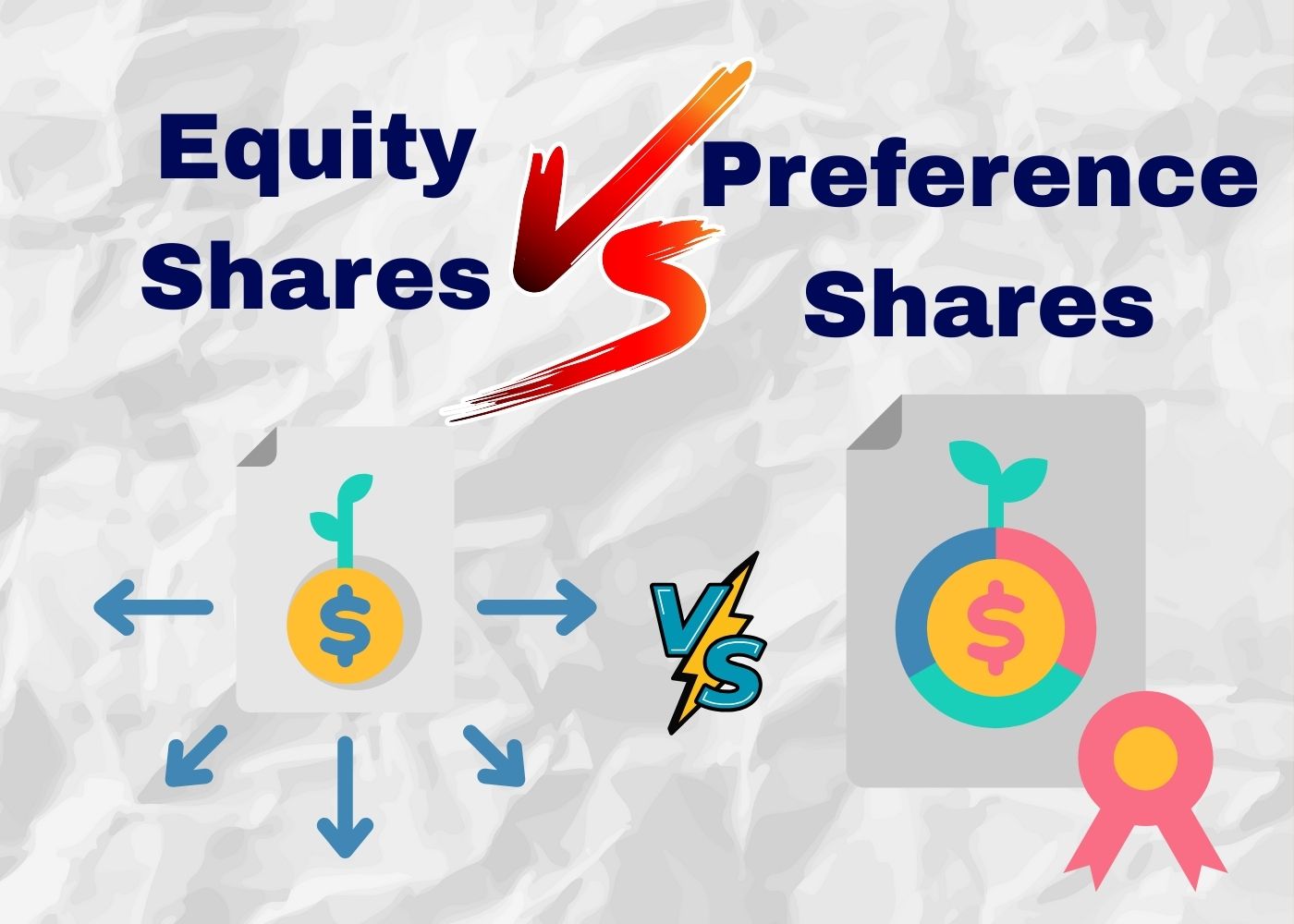What is a Share? Difference Between Two Types of Shares
Unique Learning Academy
29/08/2025
Indian Economic Development,
Class 12,
Accounting of Share Capital

What is a Share?
A share is a unit of ownership in a company. If you buy shares, you become a shareholder and get rights like receiving dividends and voting in company matters.
Imagine a large company as a giant pie. A “share” is a single slice of that pie. When you purchase a share, you are buying a defined fraction of ownership in that company. This ownership status, known as being a shareholder, comes with specific privileges. These can include a potential claim on a portion of the company’s profits and a voice in major company decisions.
This ownership is primarily divided into two distinct classes, each with its own set of rules, risks, and rewards.
- Equity Shares
- Preference Shares
1. Equity Shares
Often called ordinary shares, these represent the most common and fundamental form of ownership. Holding equity shares means you have a direct stake in the company’s success—and its failures.
- True Ownership and Control:Equity shareholders are the real owners of the company. This comes with the powerful right to vote at shareholder meetings, such as electing the board of directors.
- Profit-Sharing (Dividends):Your potential income from dividends is directly tied to the company’s performance. After all expenses and other obligations are met, the board of directors may decide to distribute a portion of the remaining profits to equity shareholders. There is no guarantee of a dividend, and the amount can vary significantly from year to year.
- Example:If you purchase 100 equity shares of a company like Reliance Industries, you become a part-owner. Your financial return is ultimately dependent on the company’s profitability and growth.
2. Preference Shares
As the name implies, these shares come with certain preferential treatment, positioning their holders ahead of equity shareholders in two key areas. In exchange for this priority, they typically sacrifice other rights.
- Fixed Income and Priority:Preference shareholders receive a fixed, predetermined dividend rate. This payment is not a variable share of profits but a fixed financial obligation that the company must meet before any dividends can be considered for equity shareholders.
- Capital Protection:In the unfortunate event a company is liquidated, preference shareholders have a superior claim on the company’s remaining assets. They must be paid back the face value of their investment before any funds are returned to equity shareholders.
- Limited Influence:In most cases, preference shares do not carry standard voting rights. Therefore, while they have financial priority, they usually cannot influence corporate policy or management decisions.
Difference Between Preference Shares & Equity Shares
While both represent ownership, the experience of holding equity shares versus preference shares is fundamentally different. The following breakdown outlines these key distinctions in a more integrated format.
| Aspect of Comparison | The Nature of Preference Shares | The Nature of Equity Shares |
|---|---|---|
| Dividend Policy | Investors are entitled to a dividend at a fixed, pre-set rate, similar to a bond's interest payment. | Dividend payments are variable and discretionary, fluctuating with the company's profitability and board decisions. |
| Dividend Accumulation | If a dividend payment is missed, it often accumulates as a debt that must be paid to these shareholders in the future before any dividends go to equity holders. | There is no concept of accrued or accumulated dividends. If a year passes without a dividend, that income is simply lost. |
| Redemption | These shares are often designed to be redeemed (bought back) by the company after a certain period, as outlined in their initial terms. | These shares are typically perpetual and are not redeemed by the company. Owners must sell them on the open market to exit their investment. |
| Payment Sequence | They hold a senior position, legally mandating that their dividends be paid in full before any consideration is given to paying equity shareholders. | They are subordinate; dividends are only paid from profits that remain after all obligations to preference shares have been satisfied. |
| Liquidation Priority | In a winding-up scenario, these shareholders have a prior claim on the company's assets and are repaid their capital first. | They stand last in line to receive any remaining capital after all debts and preference share capital have been fully settled. |
| Governance & Voting | Generally, they do not carry the right to vote on general company matters, except in situations that directly affect their own rights. | They carry full voting rights, granting holders the power to influence the company's strategic direction and governance. |
| Role in Management | Holders are passive investors without any right to participate in the management or control of the company. | As the ultimate owners, they possess the right to participate in management by voting on key issues and electing directors. |
| Capital Structure Role | Their fixed-cost nature allows companies to use them for "trading on equity"—using borrowed capital to amplify returns for equity owners. | A capital structure heavy on equity involves higher risk for owners, as their returns are uncertain and directly exposed to volatility. |
| Company Formation | A company cannot be formed using preference shares alone; they can only be issued as part of a capital structure that includes equity. | A company can be legally formed and operate with a capital structure composed solely of equity shares. |
Recent Posts
Have Any Question?
Wish to enquire about our teaching pedagogy? Contact Us via Call or Email
- +91-9136-336-336
- contact@uniquelearning.in
